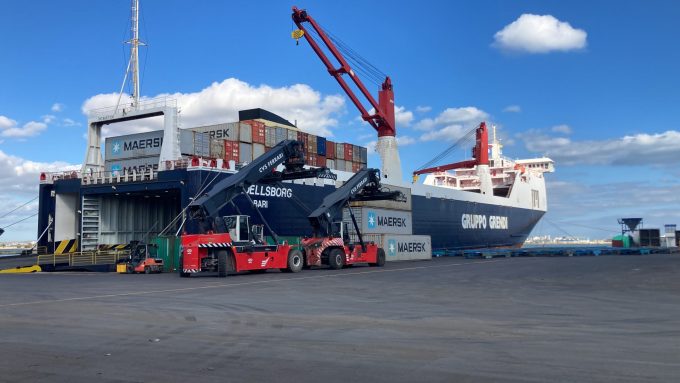Maersk vessel forced to omit Cape Town as congestion mounts
The port of Cape Town is facing significant congestion, which is set to worsen this ...

In an attempt to break into the fast-growing Tunisian export market, Maersk has taken the novel step of introducing a combined container/ro-ro service that also revives transhipment operations at the Sardinian port of Cagliari.
As nearshoring has found increasing favour among European importers, Tunisia’s garment manufacturers have begun to build up their market share as an alternative sourcing location to Asia, and today textile exports out of Tunisia are nearing the €4bn a year mark, with Europe accounting for over 80% ...
Outlook for container shipping 'more uncertain now than at the onset of Covid'
Teamsters union vows UPS will be 'in for a hell of a fight' over jobs cull
Shippers warned: don't under-value US exports to avoid tariffs – 'CBP will catch you'
Cancelled voyages take the sting out of spot rate declines this week
New Houthi warning to shipping as rebel group targets specific companies
K+N CEO unveils impact of US import tariffs on China-origin goods
Blanked sailings in response to falling demand 'just a stop-gap solution'
CMA CGM to reflag box ship as the French carrier eyes growing Indian market
More pressure on transpacific rates as carriers bet on a China-US trade deal
Boeing looks to resell up to 50 aircraft rejected by Chinese buyers
'Strong start' to 2025, despite market uncertainty, says Kuehne + Nagel
US Customs chaos means 'more downside risk than upside potential' for air cargo
Taiwan ministries act to mitigate effect of trade war on agriculture exports
Wan Hai joins box shipping 'arms race', but avoids Chinese yards for newbuilds
MOL signs up with Climeworks for direct air carbon capture and storage

Comment on this article